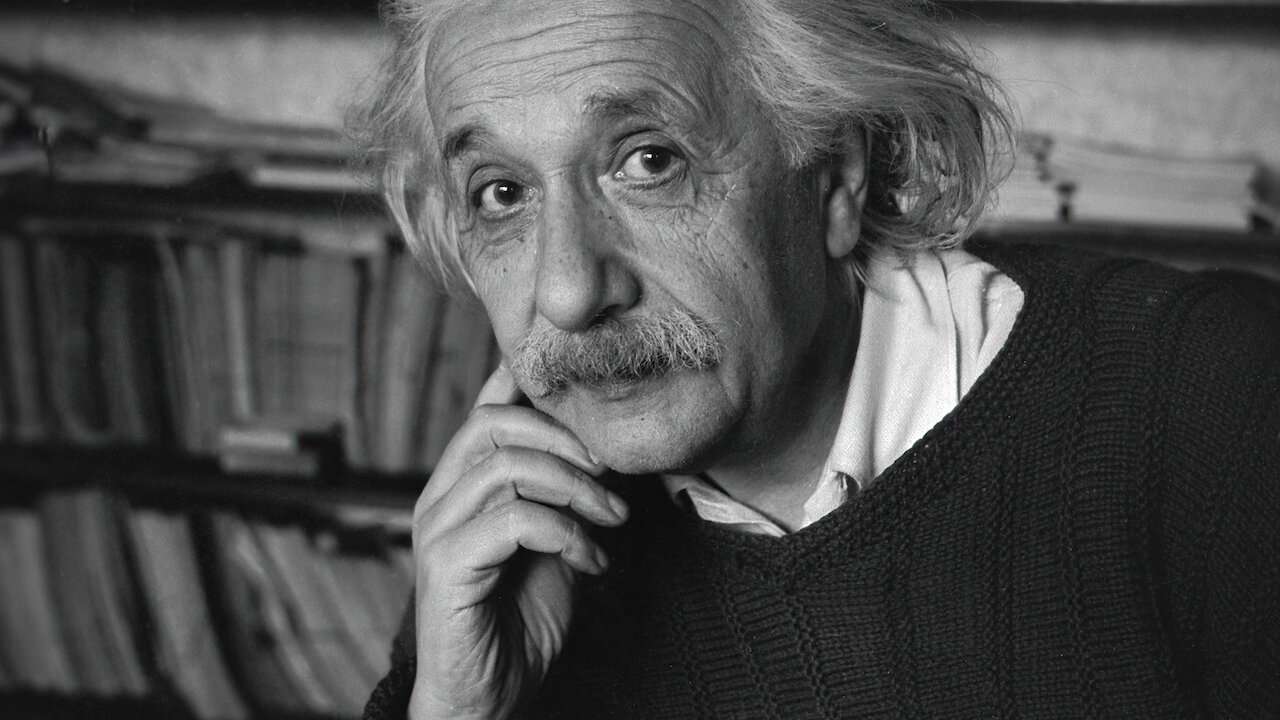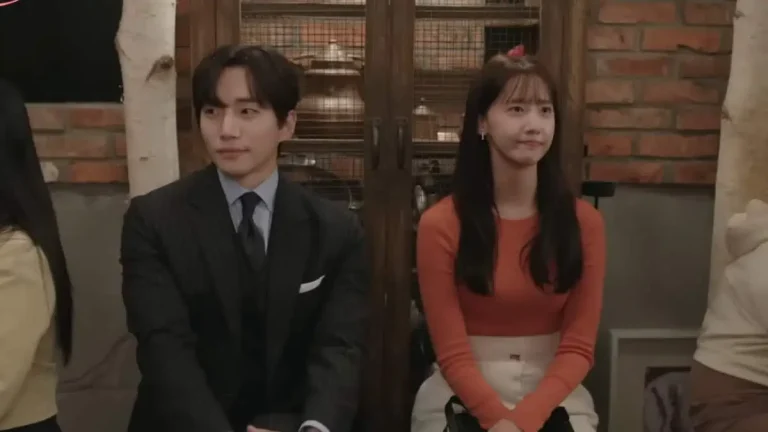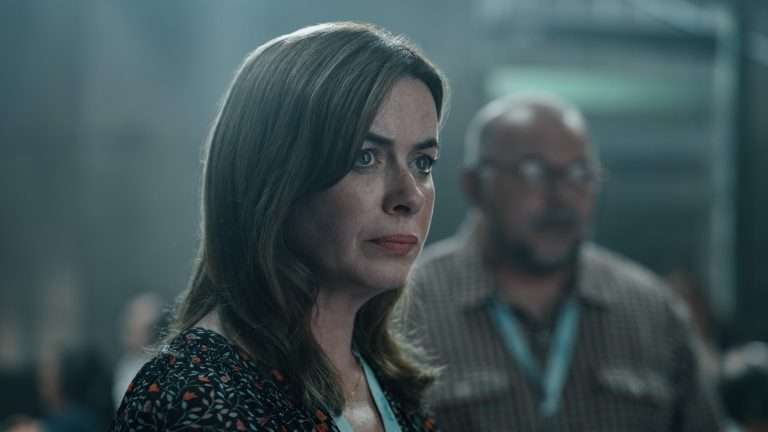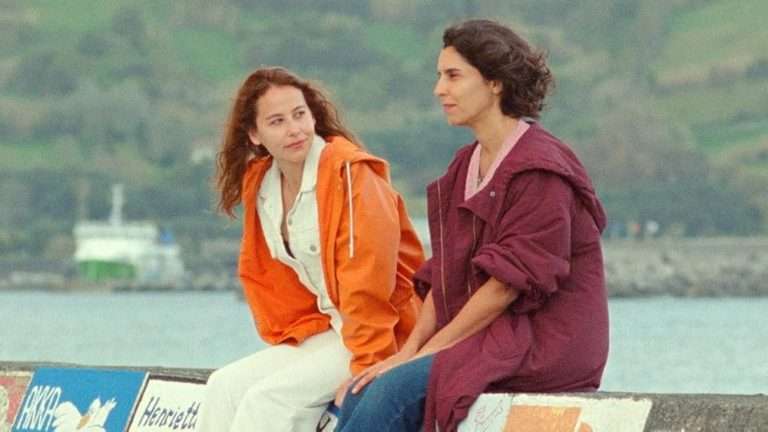Einstein and the Bomb (2023) Documentary Review: The release of Christopher Nolan’s “Oppenheimer” was a clarion call for viewers as well as filmmakers to take a look back at the key events of World War II, the preface to it and its aftermath. The release of Jonathan Glazer’s “Zone of Interest” again reconstitutes a renewed interest in the exploration of the Holocaust and the movie’s treatment of the banality and co-opting of evil.
It is no coincidence that the coattails of “Oppenheimer” as well as “Zone of Interest” would be lucrative for other streaming companies. The Criterion Channel makes the Oppenheimer documentary, directed by Jon Best, free for all to watch. NBC Universal commissions an official documentary about Robert J. Oppenheimer and the making of the movie while also featuring interviews with Christopher Nolan. And now, following the significant cameo appearance of Albert Einstein (played by Tom Conti), Netflix has commissioned a documentary that would put Einstein center-stage, intent on exploring Einstein’s own dilemma at his involvement in the creation of the destructive weapon, however indirectly it might have been.
Anthony Philipson’s documentary begins with an empathetic statement that all the dialogues voiced by Einstein are excerpts Einstein had spoken of and about. Philipson’s intent, perhaps, had been to introduce and strengthen the veil of authenticity, which would have been further strengthened by the use of archival footage documenting Einstein’s disillusionment, his leaving of Nazi Germany, his empathetic anti-Hitler and anti-fascistic stance, as well as him indirectly admitting his folly in letting the dominoes fall in researching nuclear fission, which would have led to the creation of the atomic bomb. That archival footage, as well as Einstein’s own voiceovers, urge people to learn, understand, and try to evolve. One can surmise that Einstein’s sadness also arose because he knew about the limitations of humanity.
It bears repetition that the intent of the documentary is sound, and re-enactments by themselves aren’t exactly wrong. If done well, they provide a form of grounding for the viewers, who could only view non-fiction as a form of information dissemination and risk losing interest in the process. Re-enactments would produce the illusion of a narrative, which would allow a similar form of editing that one expects in a fictional narrative that is more familiar to a larger populace.
“Einstein and the Bomb” not only falters but also completely derails itself, producing a re-enactment reminiscent of a stodgy stage play. There is, of course, the possibility that a pivotal moment of Einstein deciding to conduct a speech at the Royal Albert Hall before leaving for the United States permanently was taken at a cottage in Norfolk after much deliberation, while a bust of Einstein had been sculpted by a famous sculptor named Epstein, who utters the words, “Professor, I am very interested in your head.”

Therein lies the disconnect. As much as authenticity could be maintained, or the illusion of such is maintained by co-opting Einstein’s own words and sprinkling them within narrative dialogues, the re-enactments feel so stodgy and low-budget, with the dialogues feeling rote and far too simplistic, that instead of grounding a viewer into the events, they completely pull you out of the narrative.
It is not the fault of Aidan McArdle for essaying the role of Einstein, but his makeup and wig are readily apparent. It is made even more so because Philipson chooses the baffling step of splicing in archival pictures of those exact moments at the cottage with the re-enactment. The difference only serves to make the viewer aware of the flawed execution in the illusory re-enactment.
It is fascinating, then, that McArdle’s voice works better when his voiceovers, spliced with Einstein’s own, are laid over the archival footage. There is an argument that this documentary would have worked better as a podcast, and that’s a legitimate one. The final complaint that could be laid at the feet of “Einstein and the Bomb” is the involvement of the bomb in the narrative.
The documentary would have worked infinitely better if an equal amount of time had been given to Einstein and his dilemma and guilt with his identity as a German and a Jew, as well as the time given to the atomic bomb. Instead, the bomb, like in the title, is treated almost like an afterthought, with the last 30 minutes racing towards the end of the documentary, where Einstein finally admits his mistake of signing the letter urging President Roosevelt to begin work on atomic weapons.
The central tenet of a documentary, according to me, is both the information being delivered as well as the methodology of dissemination of said information. “Einstein and the Bomb” works on the information front. The methodology is where it falters spectacularly, reducing an important and interesting topic to throwaway viewing. Considering that it has been released on Netflix, maybe that was the point.









